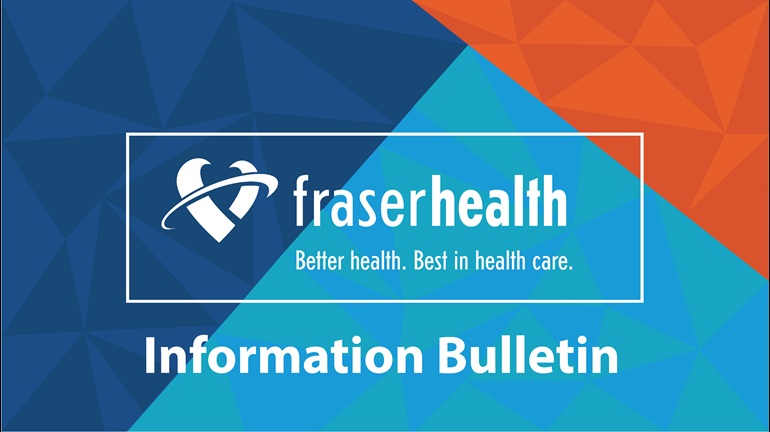
Extreme heat continues in our region with high temperatures forecast through the week.
Overnight temperatures remain high, meaning indoor temperatures are likely increasing day-to-day in homes without air conditioning.
This cumulative effect of high daytime temperatures with limited overnight relief can lead to heat-related illness. We are currently seeing a significant increase in the number of people seeking emergency care for heat stroke, heat exhaustion and other heat-related concerns, particularly in the elderly and other vulnerable populations.
“To help prevent heat stroke or heat exhaustion, seek cooling options before symptoms develop. Check regularly on older people, and those who are unable to leave their homes, for signs of heat-related illness. If they are unwell, assist in moving them to a cooler location, help them get hydrated and call for medical assistance if appropriate,” says Dr. Emily Newhouse, Fraser Health medical health officer.
Signs of heat-related illness may include: changes in behaviour, dizziness or fainting, nausea or vomiting, headache, fast breathing or heartbeat, extreme thirst, and decreased urination. Severe signs of illness requiring immediate medical care include: a high body temperature, confusion, hallucinations, lack of coordination, seizures, and/or a loss of consciousness.
Staying cool
- Above all, stay hydrated and cool. Seek out air-conditioned facilities such as a shopping centres, libraries, community centres or restaurants. The central Fraser Valley and parts of Metro Vancouver are also experiencing poor air quality right now due to heat-related ground level ozone, especially during the afternoon.
- Air conditioned spaces offer a break from both heat and poor air quality. Local municipalities have opened cooling centres that are accessible to members of the public. Visit your local municipality website for a list of the cooling centres that are open in your community.
- Use public splash parks, water parks, or pools, or take a cool bath or shower.
- Applying cool water mist or wet towels prior to sitting in front of a fan is a quick way to cool off. At current temperatures, fans alone are not effective.
Other tips to stay safe in the heat
- Drink cool, non-alcoholic beverages (preferably water) regardless of your activity intake. Don’t wait until you are thirsty.
- While everyone is at risk of heat related illness, hot temperatures can be especially dangerous for the young, the elderly, those working or exercising in the heat, persons with chronic heart and lung conditions, persons with mental illness, people living alone and people experiencing homelessness. If you are taking medication, particularly for mental illness, ask your doctor or pharmacist if it increases your health risk in the heat and follow their recommendations.
- If you are wearing a mask and are having difficulty breathing, remove the mask, whether you are indoors or outside, as the risk of wearing a mask may impact thermal regulation during heat events.
For media inquiries, please contact:
media@fraserhealth.ca
